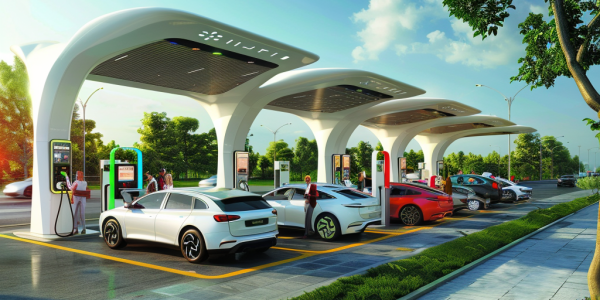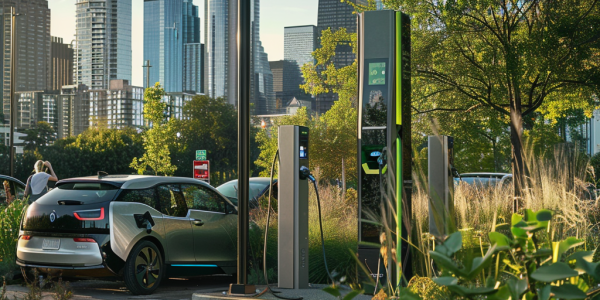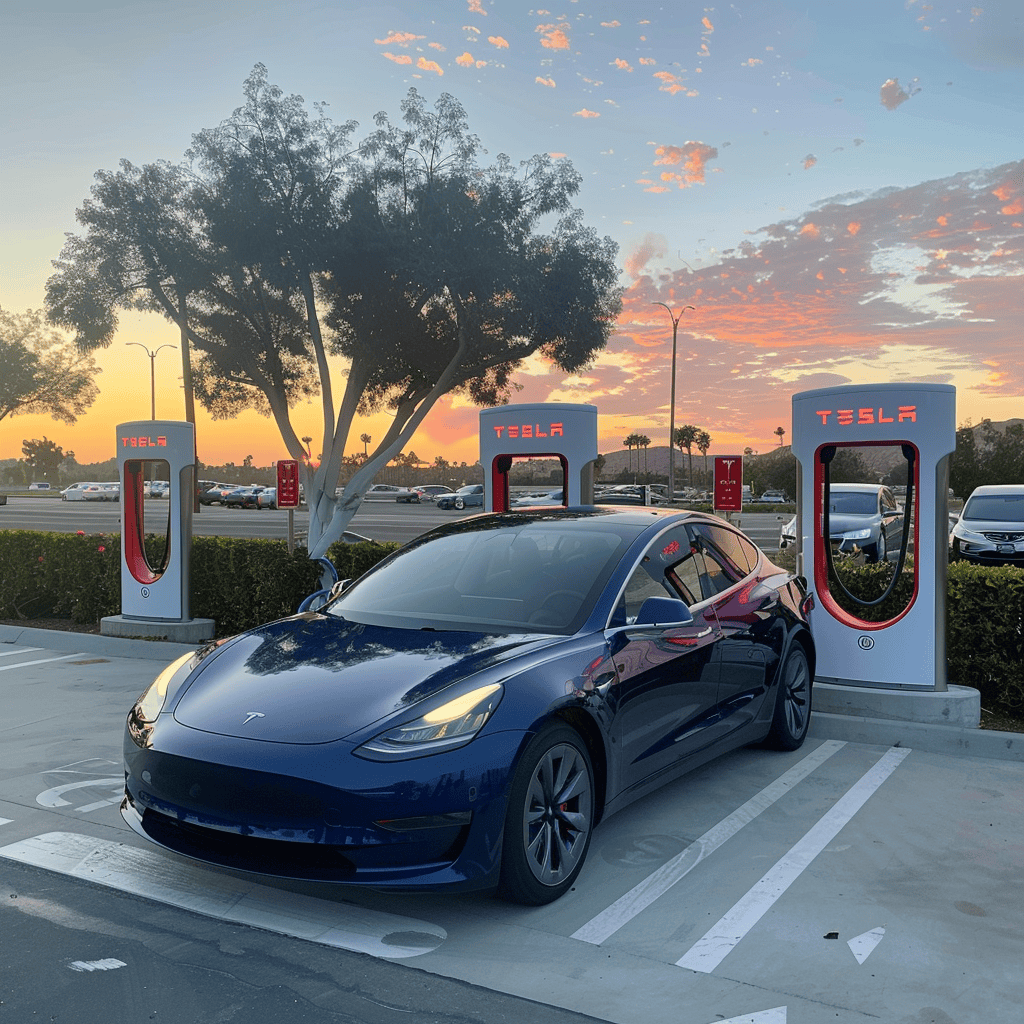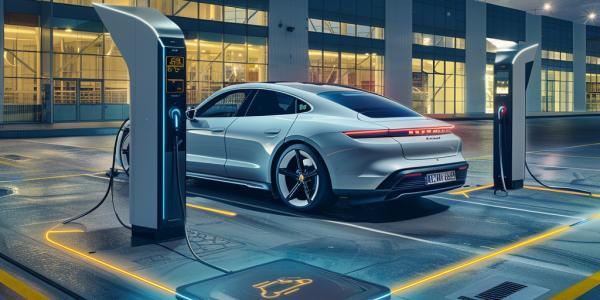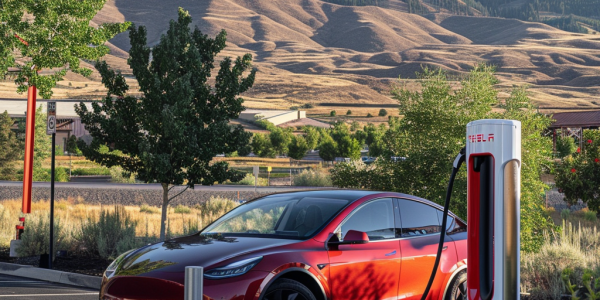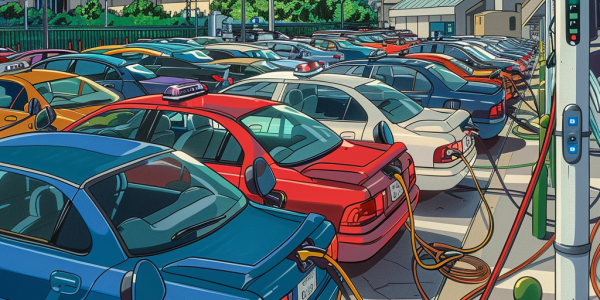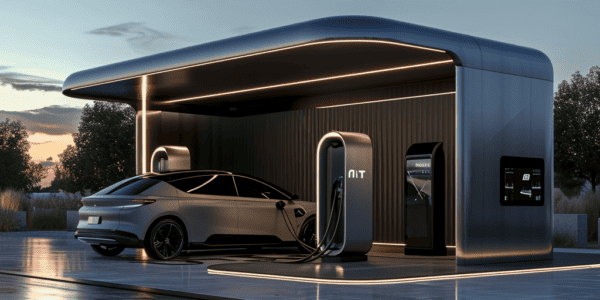Li Auto Launches 1,100th Supercharging Station, Expands EV Infrastructure
Li Auto has launched its 1,100th supercharging station, marking a significant expansion in its electric vehicle (EV) infrastructure. With over 600 high-speed supercharging stations and plans to reach 700 by year-end, Li Auto is enhancing EV accessibility across China. This robust network aims to alleviate range anxiety for an increasing number of EV users, while the company also focuses on advancing smart driving technologies. As Li Auto prepares to report its Q2 2024 earnings, its growth in vehicle deliveries and strategic initiatives position it as a key player in the evolving EV market.
AmpUp Secures $15 Million in Series A Funding to Expand EV Charging Solutions
AmpUp secures $15 million in Series A funding to enhance its EV charging solutions and expand its market presence in the U.S. Led by Touchdown Ventures, this funding will support innovative energy management strategies and strategic partnerships, including a collaboration with WEX for fleet payment solutions. With a 7x growth in subscription revenue and a 4% market share in commercial Level 2 charging stations, AmpUp is positioned for continued success in the electric vehicle infrastructure sector.
Enhancing EV Charging Resilience in Florida Amid Hurricane Threats
A recent study from the University of Florida highlights the urgent need for resilient electric vehicle (EV) charging services in Florida, especially during hurricane season. As extreme weather poses challenges, enhancing the infrastructure and planning for charging stations is crucial for maintaining reliable access during emergencies. This research underscores the importance of integrating socioeconomic factors and robust planning to ensure that EV charging networks can withstand natural disasters, promoting sustainable transportation amid climate change.
Tesla Maintains Dominance in EV Charging, JD Power Study Reveals
A recent JD Power study reveals Tesla’s dominance in the electric vehicle (EV) charging landscape, highlighting its lead in Level 2 and Level 3 charging networks. With a focus on service over profit, Tesla’s extensive Supercharger and Destination Charging networks have set the gold standard for EV charging, achieving high satisfaction scores among users. As the EV market grows, Tesla’s commitment to enhancing the charging experience positions it as a frontrunner, challenging competitors to elevate their own charging solutions.
Volkswagen and DOE Set New Record in Wireless EV Charging with Porsche Taycan
Volkswagen and the U.S. Department of Energy have achieved a milestone in wireless EV charging with the Porsche Taycan, successfully transmitting 270 kW of power. This groundbreaking technology mirrors smartphone charging convenience and could revolutionize the electric vehicle landscape, enhancing efficiency and user-friendliness for future EVs.
Idaho Advances Electric Vehicle Charging Network Initiative
Idaho is advancing its electric vehicle (EV) infrastructure by establishing a network of charging stations through the National Electric Vehicle Infrastructure Formula Program (NEVI). This initiative aims to enhance accessibility for EV drivers, with strategic locations identified in Pocatello, Bliss, and Lewiston. A virtual public meeting on July 31 will engage stakeholders in the development process, emphasizing Idaho’s commitment to sustainable transportation and reducing carbon emissions.
Grid Limitations Pose Major Hurdle for EV Charging Station Development
Grid limitations are a major obstacle for EV charging station developers, with 75% identifying it as a challenge. A survey by Endeavor Business Intelligence and Xendee shows a growing optimism towards distributed energy resources and microgrids. Xendee highlights the struggle of clients to secure sufficient energy for projects, sometimes resorting to fossil fuel-powered generators. Michael Stadler from Xendee emphasizes the persistent challenges faced by EV charging infrastructure developers in obtaining electricity. The disparity between time-of-use rates and power charges is a key issue impacting operational costs of EV charging stations.
Michigan’s Auto Industry Faces Uncertainty with Shift to Electric Vehicles
Michigan’s economy is facing a new challenge as the shift towards electric vehicles takes center stage, sparking a contentious debate over its impact on job creation and job loss. President Biden’s endorsement of electric vehicles as a means of creating high-paying jobs and reducing emissions has been met with skepticism by autoworkers, who fear a reduction in manufacturing jobs. The endorsement of President Biden by the United Automobile Workers union has added to the complexity of the situation, with members expressing disappointment and concern over the potential impact of the shift towards electric vehicles on American employment.
NT-Tao: Revolutionizing EV Industry with Nuclear Fusion Power Generation
Honda-backed Israeli startup, NT-Tao, is set to revolutionize the electric vehicle (EV) industry by harnessing the power of nuclear fusion. The company plans to utilize mini fusion power generation facilities as charging stations for EVs, marking a significant leap in…

